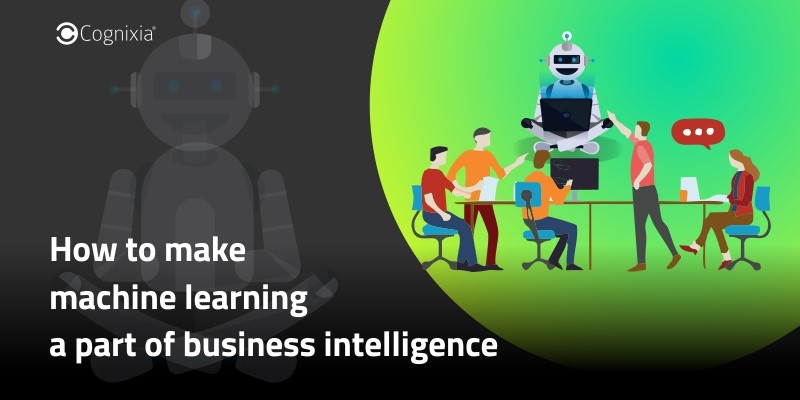Within the current rapidly evolving corporate landscape, the ability to bounce back has emerged as a key component for achieving goals. Companies are constantly faced with unforeseen obstacles, from sudden industry fluctuations to unforeseen catastrophes. To navigate these obstacles successfully, companies must adopt comprehensive plans that emphasize stability and flexibility. This is the point at which AI emerges as a transformative force, delivering groundbreaking strategies that improve business operational continuity planning.
AI solutions have the ability to revolutionize the way companies anticipate and address to disruptions. By utilizing advanced data analytics, ML, and advanced modeling, organizations can gain insightful knowledge into potential risks and create proactive measures to reduce them. This intelligent approach not only helps in recognizing weaknesses but additionally facilitates the decision-making procedures, guaranteeing that organizations can continue operations even in the midst of challenges. As we examine the benefits of using artificial intelligence in business, it is evident that obvious that utilizing this tool can significantly strengthen resilience and drive prolonged success.

Artificial Intelligence in Risk Evaluation
AI has arisen as a influential tool in the field of risk assessment, enabling businesses to detect and analyze potential threats with greater exactness and swiftness. Traditional risk evaluation techniques often rely on personal judgment and experience, which can be subjective and susceptible to skew. AI, on the other hand, makes use of extensive datasets of data, employing machine learning algorithms to reveal patterns and correlations that may elude human scrutiny. This data-centric approach enables organizations to quantify risks more effectively and rank their response strategies accordingly.
Additionally, AI can boost the forecasting capabilities of risk evaluations. By reviewing historical data and present trends, AI systems can predict possible disruptions and weaknesses in a company's operations. This predictive insight enables companies to take proactive measures, mitigating risks before they grow into crises. The ability to simulate various scenarios allows management teams to prepare for a series of results, ultimately strengthening their resilience against unexpected occurrences.
Additionally, the implementation of AI in risk evaluation encourages a more dynamic approach to monitoring and adjusting to risks over time. As new data emerges available, AI systems can constantly learn and revise risk models, making sure that organizations remain alert against new threats. This flexibility is essential in the current fast-paced business environment, where the risk landscape can shift swiftly. By integrating AI into risk evaluation practices, businesses can improve their decision processes, ensuring they are well-equipped to handle uncertainties and ensure continuity during difficult periods.
Enhancement in Operational Processes
AI technologies transform business continuity management by automating standard procedures and decision-making. With the capability to assess data and identify patterns, AI can efficiently manage various work processes. This implies that tasks such as backup processes, monitoring systems, and incident reporting can be executed with minimal human intervention, enabling staff to focus on higher-level initiatives.
Moreover, automated processes enhances the efficiency and reliability of response mechanisms during crises. By leveraging forecasting techniques, organizations can foresee potential risks and implement preventive measures before situations worsen. Real-time supervision powered by AI ensures that businesses can act promptly to outages, ensuring that critical operations remain stable and customer service persists with minimal interference.
Finally, the implementation of AI into continuity processes leads to improved distribution of resources. Automated technologies can evaluate which resources are most efficient in restoring operations and enhance their deployment. This not only decreases downtime but also cuts costs associated with business interruptions, providing companies with a robust framework to handle uncertainties confidently.
Predictive Analytics for Resilience
In the current business environment, organizations confront numerous challenges that can disrupt operations. Predictive analysis, powered by machine learning , allows businesses to assess vast amounts of historical data to predict potential disruptions. By recognizing patterns and trends, companies can proactively manage risks before they escalate into significant issues. This capability not only enhances operational efficiency but also builds a robust framework capable of withstanding unexpected events.
One of the key benefits of leveraging AI in predictive analytics is the ability to make informed decisions based on analytical insights. For instance, organizations can forecast supply chain interruptions due to various factors such as meteorological events, global events, or market fluctuations. By having a clearer understanding of potential risks, businesses can implement contingency plans and optimize resource allocation. This not only minimizes downtime but also ensures a smoother recovery strategy in the face of adversity.
Moreover, predictive analytics enhances continuous improvement in business continuity planning. By regularly revising models with new data, companies can improve their strategies and adapt to shifting circumstances. This iterative process strengthens an organization’s resilience and allows for a quicker response to challenges. As businesses more and more rely on AI-driven solutions, integrating predictive analytics will undoubtedly become a cornerstone of effective business continuity planning, ensuring organizations remain responsive and prepared for the uncertainties ahead.
